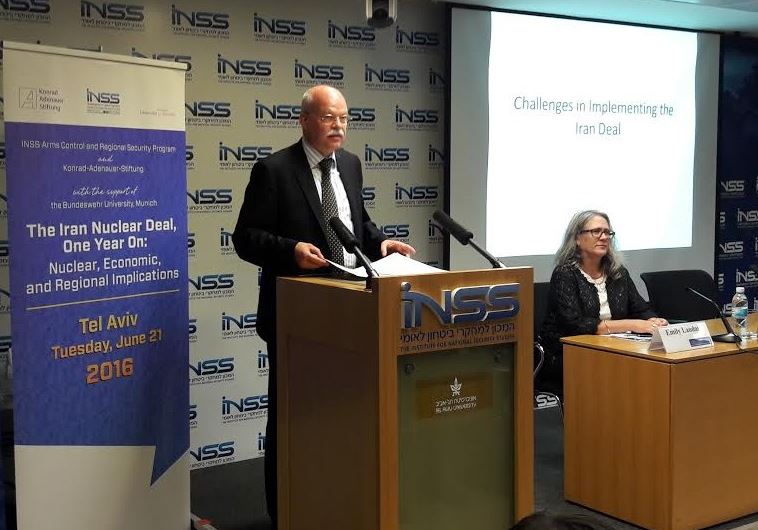German Ambassador: Iran deal achieved its goals, will not accept Iran threatening Israeli existence
The German Ambassador said the deal did not try to “influence Iran’s regional policies or change the character of the regime."
 German Ambassador to Israel Dr. Clemens Von Goetze at INSS Iran Conference(photo credit: YONAH JEREMY BOB)Updated:
German Ambassador to Israel Dr. Clemens Von Goetze at INSS Iran Conference(photo credit: YONAH JEREMY BOB)Updated: